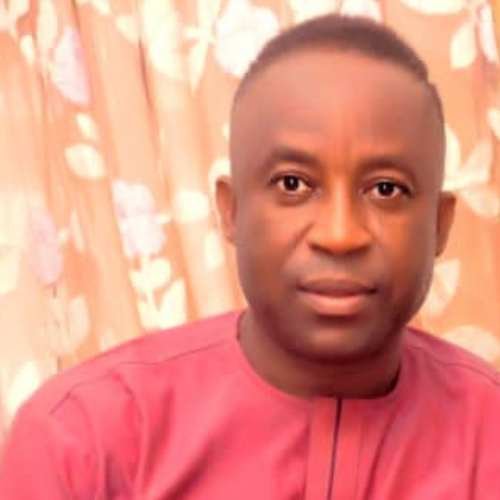Huge Setback: Gamecocks’ Shane Beamer and Head Coach Dabo Swinney Angrily Announce Their Resignations
In an unexpected and shocking turn of events, both Shane Beamer, the head coach of the South Carolina Gamecocks, and Dabo Swinney, the legendary coach of the Clemson Tigers, have resigned in a highly emotional and dramatic manner. Their announcements, which took place on the same day, sent shockwaves through the college football community. What was supposed to be another busy season filled with fierce rivalry games and hopeful championship runs for both teams has now been marred by sudden exits that nobody saw coming.
The Situation Unfolds: A Series of Emotional Press Conferences
The drama unfolded early in the morning as Shane Beamer, known for his passionate and fiery demeanor, delivered an impromptu press conference in Columbia, South Carolina. Appearing visibly frustrated and emotional, Beamer stated, “This is a tough decision, one I never imagined I would be making. But at this point, it’s clear that the situation here is no longer conducive to my well-being or the future of this team. After much reflection, I am stepping down as head coach of the Gamecocks, effective immediately.”
Beamer’s resignation, following a season of ups and downs, particularly during the bitter losses to key rivals, left many stunned. He went on to explain his frustration with the lack of support from the university’s athletic department and some behind-the-scenes issues that had led to increasing tensions. While Beamer’s tenure as head coach had shown some promise, particularly with his ability to recruit and build a foundation for the program, his relationship with the administration had become strained over the past several months.
Shortly after Beamer’s resignation, the college football world was rocked by Dabo Swinney’s decision to step down as head coach of Clemson University. Swinney, who had been the face of Clemson football for more than a decade, guiding the Tigers to multiple national championships, appeared just as fired up during his press conference in Clemson. “This program has been my life, my blood, sweat, and tears for over a decade. But sometimes, you have to step away before it consumes you entirely,” Swinney declared in a voice that cracked with emotion. “I’m resigning immediately, effective today.”
Much like Beamer, Swinney cited his increasing dissatisfaction with various aspects of the job. But in Swinney’s case, the announcement came after a series of frustrating losses that had seriously threatened Clemson’s status as one of the top teams in the country. Swinney expressed feeling a growing disconnect with the direction of the program and the mounting pressure from the media and fans for a return to glory. His resignation was especially unexpected given his track record of success and his deep connection to the Clemson program, which he had helped elevate to elite status.
What Led to This Dramatic Exit?
While the exact reasons for both coaches’ departures are still unfolding, a few key factors appear to have played a role.
- Tension with University Administrations: Beamer’s relationship with the South Carolina administration had reportedly been deteriorating for some time. Sources close to the program have suggested that there was a lack of alignment regarding long-term goals and expectations for the team’s performance. In particular, Beamer had grown frustrated with the university’s lack of financial investment in the program, including underwhelming resources for recruiting and facilities. These behind-the-scenes struggles likely contributed to his sudden decision to step down.
For Swinney, his resignation appeared to stem from a similar frustration with the demands of the job. Sources close to Clemson’s athletic department revealed that Swinney had privately expressed concerns about the changing landscape of college football, particularly the increasing influence of NIL (Name, Image, and Likeness) deals and the growing pressure from fans and boosters for immediate results. Swinney had always prided himself on building a program the “Clemson way,” but the landscape of college football had shifted dramatically, and Swinney struggled to adjust to these new realities.
- Inconsistent On-Field Performance: Both Beamer and Swinney had experienced varying levels of success on the field in recent seasons. Beamer had inherited a program that was in transition, and while he had some notable victories, his overall record had been mixed, leading to increased scrutiny. This past season, the Gamecocks had failed to win some critical games, including a heartbreaking loss to their in-state rival Clemson, which only added fuel to the fire.
Swinney, on the other hand, had led Clemson to multiple national championships, but the program had been in decline in recent years. With a disappointing season where Clemson had struggled to maintain its dominance in the ACC and nationally, Swinney had been facing growing criticism. Although his place in Clemson history as a coach was secure, the pressure to return the team to the top had become overwhelming.
- Personal Struggles and Burnout: Both coaches have been open about the personal toll the job has taken on them over the years. For Beamer, the relentless pressure of trying to rebuild South Carolina into a competitive SEC program had led to exhaustion and burnout. He was often seen pacing the sidelines, visibly tense and frustrated, a stark contrast to the energy he once brought to the job. His resignation was as much a personal decision as it was professional.
Swinney had similarly struggled with the grind of being at the helm of one of the top programs in the country. The constant pressure to win, combined with the demands of recruiting, media obligations, and booster expectations, had started to wear him down. His resignation was seen by many as a way to regain his mental peace and avoid further burnout.
Fallout and Implications for Both Programs
The resignations of both Beamer and Swinney have left South Carolina and Clemson in a state of uncertainty. For South Carolina, the search for a new head coach will likely be difficult. The Gamecocks will need someone who can navigate the challenges of the SEC while rebuilding the program’s identity. With Beamer’s departure, the team risks losing valuable recruits and momentum that had been building over the last few years.
Clemson, too, faces significant challenges in the wake of Swinney’s exit. The Tigers will now have to find a new leader who can maintain the program’s tradition of excellence. Given Swinney’s legacy, the decision to replace him will be critical to the long-term success of the program. Clemson’s athletic department will likely be under pressure to find a coach who can restore the Tigers to national prominence while managing the shifting landscape of college football.
The Road Ahead
As both programs grapple with these unexpected changes, the college football world waits to see what the future holds for South Carolina and Clemson. Beamer and Swinney’s departures mark the end of an era for both programs and leave fans wondering what’s next.
For now, both programs are facing a crossroads, where decisions about coaching, leadership, and long-term direction will be pivotal in determining whether these storied programs can overcome the challenges ahead. While the exits of Beamer and Swinney are certainly a setback, they also offer an opportunity for reinvention and growth—one that will require both fanbases to rally around new leadership and a renewed commitment to the future.


0 Comments